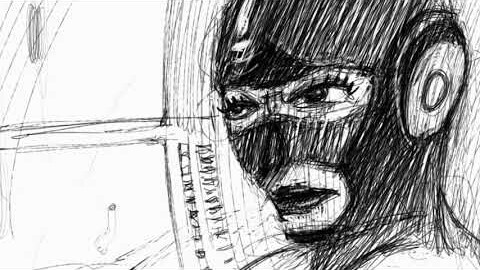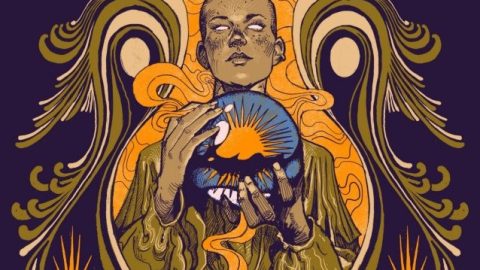The Lowdown: Over the last decade, Best Coast singer, songwriter, and guitarist Bethany Cosentino has specialized in blending soul-wrenching angst with bright pop confections that echo ‘60s girl groups, surf rock, and soaring anthems in the tradition of The Bangles and Go-Go’s. Following an initial splash, the buzzy California duo, which also includes multi-instrumentalist Bobb Bruno, released such introspective tracks as “Who Have I Become?”, “Fear of My Identity”, and “How They Want Me to Be”, suggesting she was wrestling with the stresses of a high-profile life. Best Coast’s fourth long-player, not counting a 2018 children’s album, the stirring Always Tomorrow arrives accompanied by the news of Cosentino’s recent sobriety. She calls it “the story of a second chance.”
(Buy: Tickets for Upcoming Best Coast Shows)
The Good: Cosentino tells her story with unfiltered candor, never sparing herself or blaming others, and resisting reassuring platitudes that might imply she’s solved all her problems. Largely avoiding confessional melodrama or reality-show theatrics (Will she relapse? Who’s to blame for her problems?), she focuses on the aftermath of getting clean, detailing the gritty day-to-day challenges of building a new life free of dependency, be it on numbing substances or a toxic relationship. Shaped by the language of therapy, this absorbing narrative touches on her previous distress, recalling how she used to “cry myself to sleep/ Reading all the names they called me,” in the stomping “Everything Has Changed” and referencing “How They Want Me to Be” on the toe-tapping “Graceless Kids”, where Cosentino refuses to hold herself up as a newly minted role model. When she exclaims, “Who am I to keep preaching/ To the graceless kids of tomorrow/ They need a hero, not a wreck/ I’m just a phony in a floral print dress,” her humility is deeply moving.
Always Tomorrow is an emotional roller coaster, alternating between Cosentino’s relief at being better off now and the uneasy realization that there’s always more work to do the next day — because she’s only human, after all. The lovely “For the First Time” revolves around realizing how self-care makes change possible, noting, “The demons deep inside of me/ They might finally have been set free,” and concluding, “I’m doing fine.” Elsewhere, however, on the epic “Wreckage”, she admits, “So, if I’m good now/ Then why do I feel/ Like a failure/ Almost every day?” Things might get better, but they don’t get easy!
If everything has changed in her private life, Best Coast’s musical strengths remain the same. Cosentino and Bruno excel at ringing guitar pop (see “Different Light”), and her warm, engaging voice reveals an unguarded desire to put her heart on the line, whatever the consequences. Modeled on a ‘50s teen ballad, the tender “True” links recovery and a genuinely caring relationship. Where other singers might inject a note of irony or cool in fear of seeming corny, she plays it straight, with memorably touching results.
Grouped at the end of Always Tomorrow, a trio of tracks emphatically close the book on the bad romance that accompanied, and possibly enabled, Cosentino’s self-destructive behavior. After declaring gently, “I just want you to be happy with another” (“Make It Last”), she stops being polite on the brooding ballad “Used to Be”, singing, “Don’t talk to me like you know me/ Cuz I’m not the girl I used to be.” Feel free to cheer as she moves on.
The Bad: Anyone not in the mood for a session of heavy sharing may find Always Tomorrow self-indulgent, though Best Coast’s knack for shiny, attractive sounds makes the intense intimacy far more palatable.
The Verdict: Deeply satisfying on multiple levels, Always Tomorrow is great guitar pop and a bracing account of one person’s struggle to construct a new life. Free of sugar-coating or easy answers, it should speak to everyone who wants to take better care of themselves.
Essential Tracks: “True”, “For the First Time”, and “Everything Has Changed”
Album Review: Best Coast Embrace Second Chances on Always Tomorrow
Matt Melis







